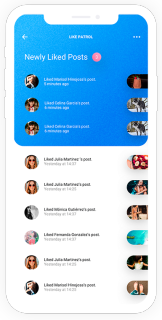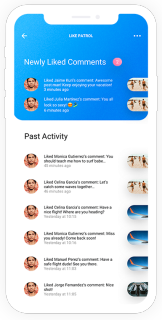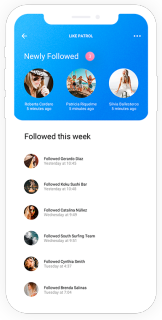Like Patrol (app)
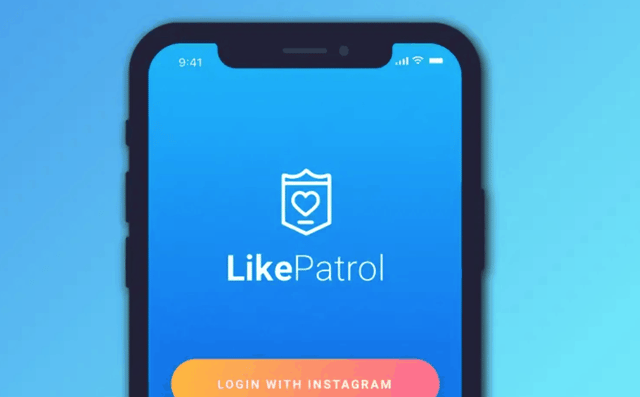
Like Patrol (app)
Like Patrol is a mobile application created to track Instagram users' activity. The application was deemed controversial and removed from the App Store (iOS) in November of 2019.[1]
Use and Features

Like Patrol's features
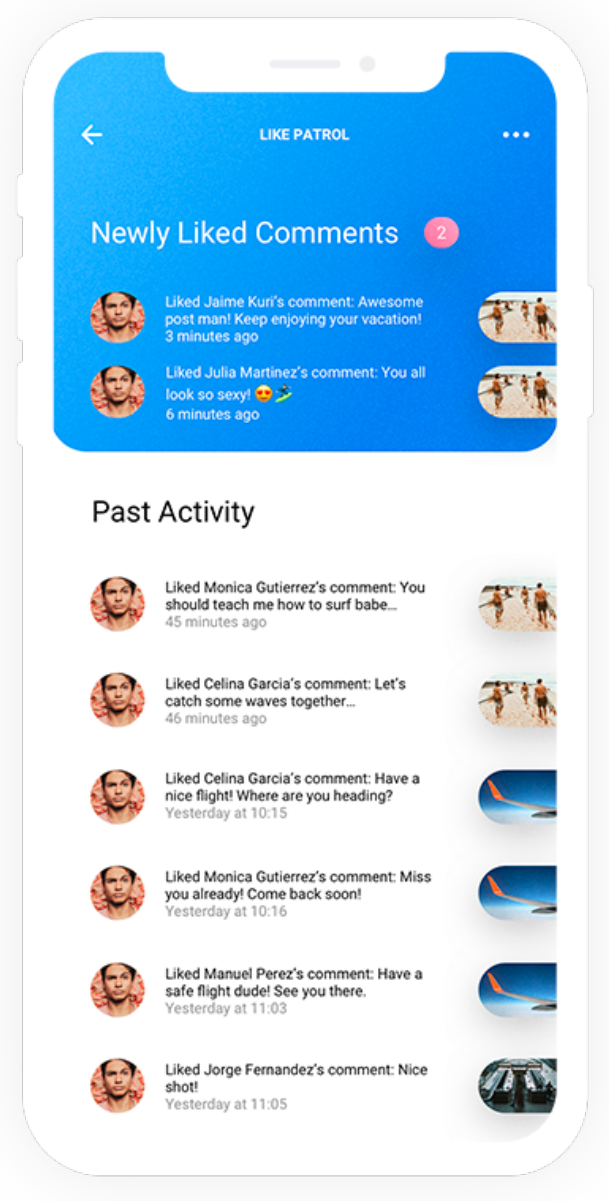
Newly Liked Comments section
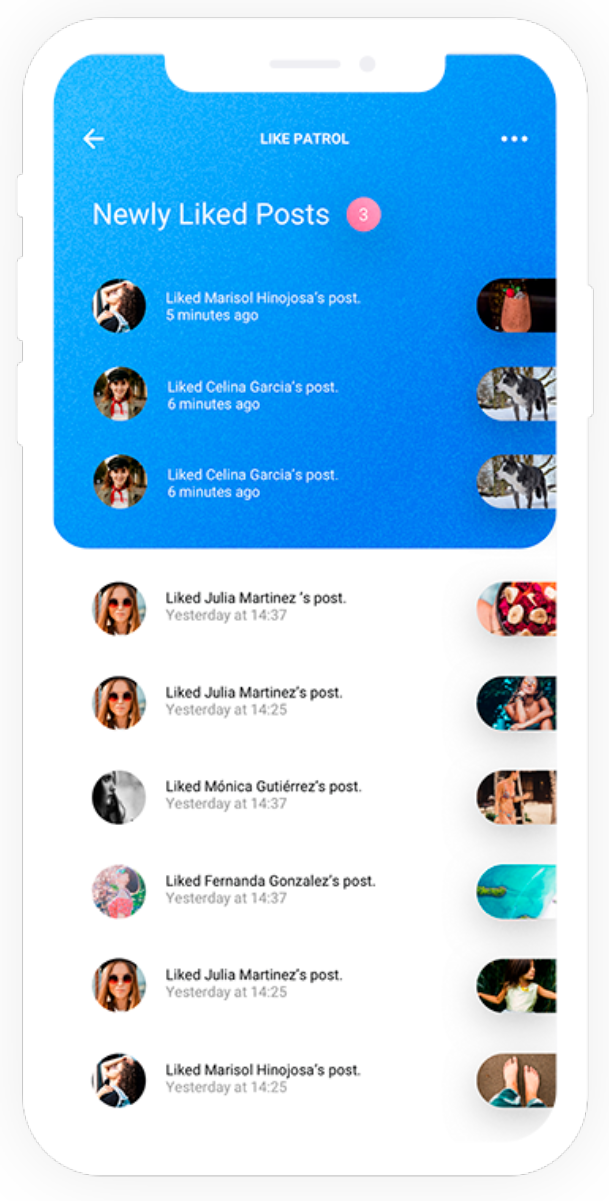
Like Patrol's feature "Liked Posts"
Founded by Sergio Luis Quintero, Like Patrol appeared in the Apple Store on iOS devices in July of 2019.
Like Patrol is described as delivering "Instagram Activity Insights" to those who subscribe to the service and download the app.
Users of the service will be notified when Instagram profiles they follow are active on the platform.
Providing the profiles the Instagram user is following
Special algorithms to rate attractiveness of users
Access to 'liked' posts on the Instagram user's profile
Providing comments and other interactions
Controversy
Deemed "Insta-creep" and a stalking app, the official website of Like Patrol describes their services in a playful banner on their website, reading,
"New guy?
New girl?
What are they up to on Instagram?
With Like Patrol you can see the posts they specifically like!
Find out who their top fans are."[8]
"Scraping violates our policies, and we take action against companies who we find to be engaging in it.
Like Patrol was scraping people's data, so we are taking appropriate enforcement action against them."
Like Patrol was banned from the App Store (iOS) in November of 2019 for violating Apple's data scraping policy. [3] When confronted with the banning, Like Patrol's founder, Sergio Luis Quintero, stated,
"We strongly believe that our app does not violate Apple policies, we plan to appeal this decision in the coming days."
Quintero also questions why Instagram was not banned from the Apple store, musing,
“If our app’s functionality did not violate any policies, then Instagram would have violated the exact same policies since 2011 to 2019 with the Following tab.
Why weren’t they taken down?”[5]
Support
Some say that Like Patrol isn't to blame for the service it offers.
Jennifer Grygiel of Syracuse University spoke her opinion on the application being banned,
“Facebook built this culture, the apps are just serving the wants of the public that were groomed on it.”[9]
